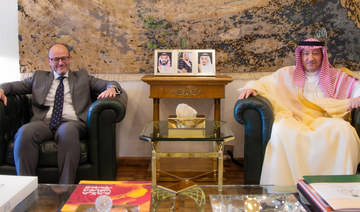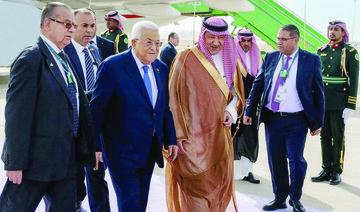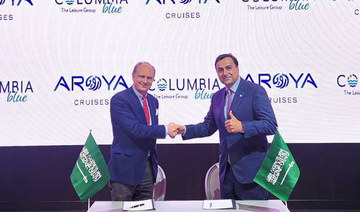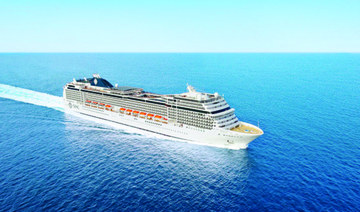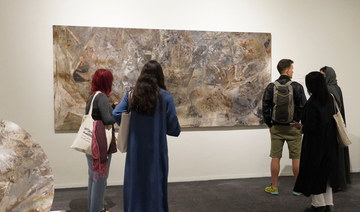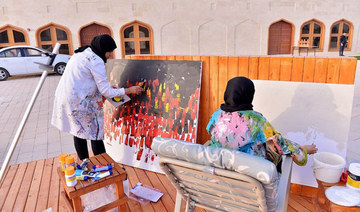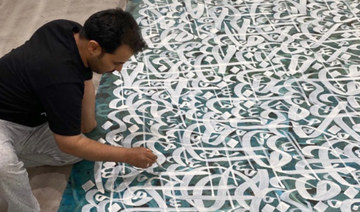JEDDAH: The international community and Muslim organizations have welcomed Saudi Arabia’s decision to allow only a “very limited” number of pilgrims to perform Hajj this year due to the ongoing coronavirus disease (COVID-19) pandemic.
Officials have said that the number of worshippers taking part in the annual pilgrimage would be around 1,000 and restricted to only Saudis and foreign nationals already residing in the Kingdom.
“The COVID-19 pandemic presents enormous challenges for the entire world,” Australian ambassador to Saudi Arabia, Ridwan Jadwat, told Arab News.
“I wish his excellency minister (Dr. Mohammed Saleh bin Taher) Bentin and his team at the Ministry of Hajj and Umrah all the very best in their ongoing efforts to identify the proper health and safety measures to look after the limited number of pilgrims that will be permitted to perform the Hajj in 2020.”
The envoy also posted a special video message on his Twitter account to update Australians who intended to perform Hajj this year about the Kingdom’s decision not to receive international pilgrims.
“I hope in the future that we would be able to overcome this global pandemic and my family and I would be able to wish you a Hajj Mabrour in person, but in the meantime stay safe and stay well,” Jadwat said.
Pakistan’s ambassador to Saudi Arabia, Raja Ali Ejaz, told Arab News that the Kingdom had taken “judicious time in reaching the decision, carefully weighing the pros and cons of various options.
“The Saudi leadership has always been cognizant of the safety, security, and spiritual fervor of the Hajj and Umrah pilgrims. I think the same factors have guided their decision this time as well.”
Ejaz said it was a wise move that balanced the religious aspirations of Muslims with the concerns regarding public health during the ongoing COVID-19 outbreak.
British consul general in Jeddah, Seif Usher, said that the UK was grateful for the Kingdom’s support to British pilgrims performing Umrah and Hajj every year. “(The UK) appreciates that in these exceptional times, the Kingdom has understandably prioritized the health and safety of pilgrims.”
Meanwhile, Dr. Mohammed bin Abdulkarim Al-Issa, secretary-general of the Muslim World League (MWL), said: “The emergency circumstance caused by the COVID-19 pandemic represents an exceptional case that Shariah law should take with great care and consideration, in order to preserve the safety of pilgrims.”
He pointed out that the value of human life was infinite in Islam and must be preserved. “Islamic Shariah considered the sanity of life a primary objective of Islamic law and one of the five necessities (preserving religion, life, intellect, procreation/lineage, and property/wealth).”
The Arab League’s assistant secretary-general and head of social affairs, Haifa Abu Ghazaleh, also praised the Kingdom’s decision over Hajj based on protecting the health and safety of pilgrims.
Under general guidelines announced during a press conference on Tuesday, it was announced that the Hajj pilgrimage would be limited to Saudis and expats under 65 years old who must undertake mandatory COVID-19 testing and isolation before and after their journey.
Bentin said that the plan for this year’s pilgrimage had been outlined with the Ministry of Health based on COVID-19 precautionary measures and that the number of pilgrims allowed to perform Hajj could be limited to less or more than 1,000.
Prof. Akhtarul Wasey, a scholar of Islamic studies based in New Delhi, said: “The decision (to limit Hajj numbers) was taken in the best interests of the global community in general and the Muslim world in particular because of the raging coronavirus pandemic.”
And he noted that this was not the first time in history that the pilgrimage had been curtailed. “There were instances in the last 1,400 years when the annual pilgrimage was cancelled or limited for one reason or another.
“Most notably during the reign of caliph Omar there was some kind of a pandemic or plague and the Hajj had to be cancelled,” he said.
Wasey called on Muslims to support the Saudi leadership “for having given top priority to the safety and health of pilgrims.”v
World community, Muslim organizations welcome strict Saudi limit on Hajj pilgrims
https://arab.news/jen7c
World community, Muslim organizations welcome strict Saudi limit on Hajj pilgrims

Saudi deputy FM receives US deputy assistant secretary of state
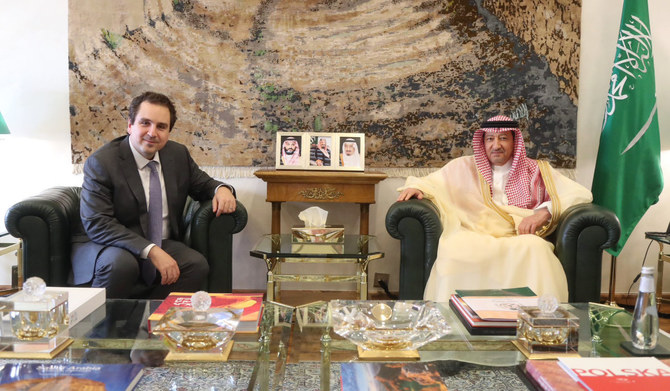
- The most prominent regional and international developments discussed
RIYADH: Saudi Deputy Minister of Foreign Affairs Waleed Elkhereiji received Daniel Benaim, US deputy assistant secretary of state for Arabian Peninsula affairs, in Riyadh on Sunday.
The two sides discussed strengthening Saudi-US relations and ways to enhance cooperation, the Saudi Press Agency reported.
The most prominent regional and international developments were also discussed, as well as the efforts put forth in these areas.
Jeddah Historic District, Cruise Saudi team up to boost visitor numbers, economy
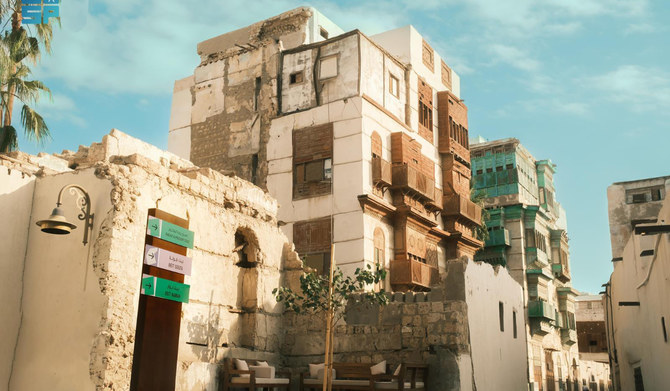
- Sides sign memorandum of understanding to ‘drive economic growth’
- Partnership ‘pivotal’ in regeneration of district, Cruise Saudi CEO says
JEDDAH: The Jeddah Historic District Program and Cruise Saudi have agreed to work together to increase the number of international cruise visitors to the city while preserving its cultural and historical integrity.
The program, established in 2018 under the auspices of the Ministry of Culture, oversees various initiatives within the so-called Historic Jeddah region with the aim of promoting it as a cultural center.
Cruise Saudi is owned by the Public Investment Fund and manages cruise-related services and infrastructure, including the development of terminals and operation of shore excursions.
Since its creation it has welcomed more than 300,000 cruise passengers.
The two sides signed a memorandum of understanding to boost economic activity and promote the region, using private sector expertise to improve the visitor experience.
The initiative is expected to create jobs, support small businesses and promote long-term economic activities that benefit the entire community.
“The tourism sector is experiencing growth and prosperity, which contributes to enhance the Kingdom’s presence on the global tourism map in line with Saudi Vision 2030,” Abdulaziz bin Ibrahim Al-Issa, director general of the Jeddah Historic District Program, said.
“Our strategic partnership with Cruise Saudi is not only to drive economic growth but also to actively engage in the regeneration of the district. We are committed to protecting both the tangible and intangible heritage that earned the district its UNESCO status.”
Cruise Saudi CEO Lars Clasen said: “This partnership is pivotal in the strategic regeneration and sustainability of the district. With this alliance, we are dedicated to presenting Cruise Saudi tourists with an experience that inspires the visitors with the district's enriched heritage.
“Jeddah’s Historic District is one of our most popular Shorex destinations and we continue to witness just how much international passengers enjoy exploring its unique historic sites through the tours and experiences we offer.
“This MOU represents our shared vision and marks an exciting new chapter, paving the way for collaborative efforts to draw even more visitors to this enchanting destination while protecting its heritage and authenticity.”
Riyadh to host Global AI Summit in September
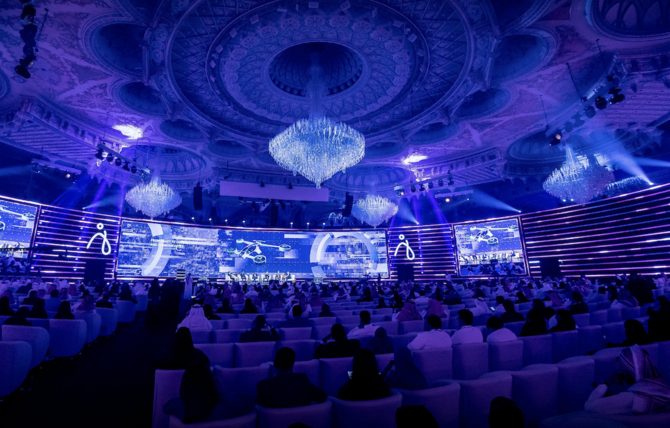
- The summit will bring together international ministers, organization heads, CEOs of major tech companies, and AI experts
- Topics at the conference will include AI innovation, industry trends, and fostering human talent in AI and other key areas
RIYADH: The Saudi Data and Artificial Intelligence Authority will host the third Global AI Summit from Sept. 10 to 12 at the King Abdulaziz International Conference Center in Riyadh, the Saudi Press Agency reported on Sunday.
Abdullah Al-Ghamdi, president of SDAIA, highlighted Crown Prince Mohammed bin Salman’s dedication to advancing the national data and artificial intelligence agenda, aiming to bolster the Kingdom’s global presence in these fields.
The summit will bring together international ministers, organization heads, CEOs of major tech companies, and AI experts to discuss global AI developments and announce initiatives and agreements, advancing international efforts in data and AI under the Kingdom’s banner.
Topics at the conference include AI innovation, industry trends, shaping a better future with AI, fostering human talent in the field, and other key areas.
This summit, under the crown prince’s leadership, is a testament to the successes of Vision 2030, which position Riyadh as a global hub for cutting-edge AI developments, the SPA said.
Swiss artist pays homage to heritage in Riyadh show
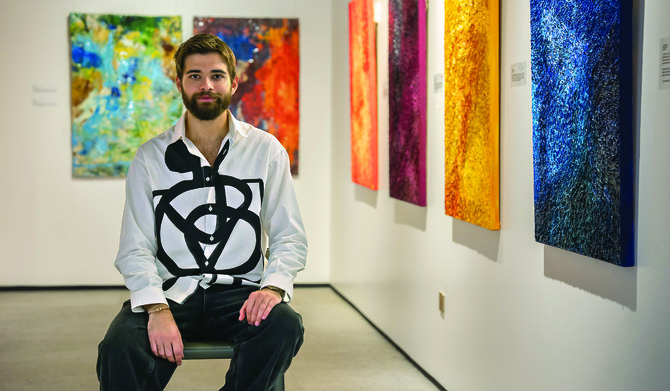
- ‘From Roots to Vision’ by Vlad Pocol is inspired by Saudi Vision 2030 and his own personal journey
RIYADH: In Ahlam Gallery’s latest solo exhibition, Swiss painter Vlad Pocol examines the ties that link past, present and future — with Saudi Arabia’s Vision 2030 as a reference point.
“If you could explain your artworks in one word, what would it be?” one listener asked. “Intuition,” Pocol replied, explaining the basis of his first show in the Kingdom.
The artist relied on intuition when he decided only a few months ago that Saudi Arabia would be his new home, leading him to create an exhibition based around three ideas: heritage, transition, and vision.
The immersive exhibition titled “From Roots to Vision: A Migration” urges observers to think about heritage, and challenge the possibilities of the future as we weave our past legacy for generations to come.

Pocol told Arab News: “It’s great to evolve, but it’s also important to stay rooted in our own heritage. I’ve taken Saudi Arabia as an example. Everyone is so excited with what’s happening with the Vision (2030), but everyone is still so rooted and respectful and inspiring in a collective way … that can also inspire us in an individual way.”
Within the “Heritage” collection, “Identites” delves into the themes of self-reflection and outsider perceptions. Four papier mache panels woven together by rope encourage the viewer to see alternative versions of themselves as they are layered in complexity with oil paint.
It is great to evolve, but it is also important to stay rooted in our own heritage.
Vlad Pocol, Swiss artist
“Legacite” is a series of six artworks that explores the themes of circularity, continuity, and generational cycles. In a single dot, each painting prompts a reflection on the viewer’s part within these continuous loops.
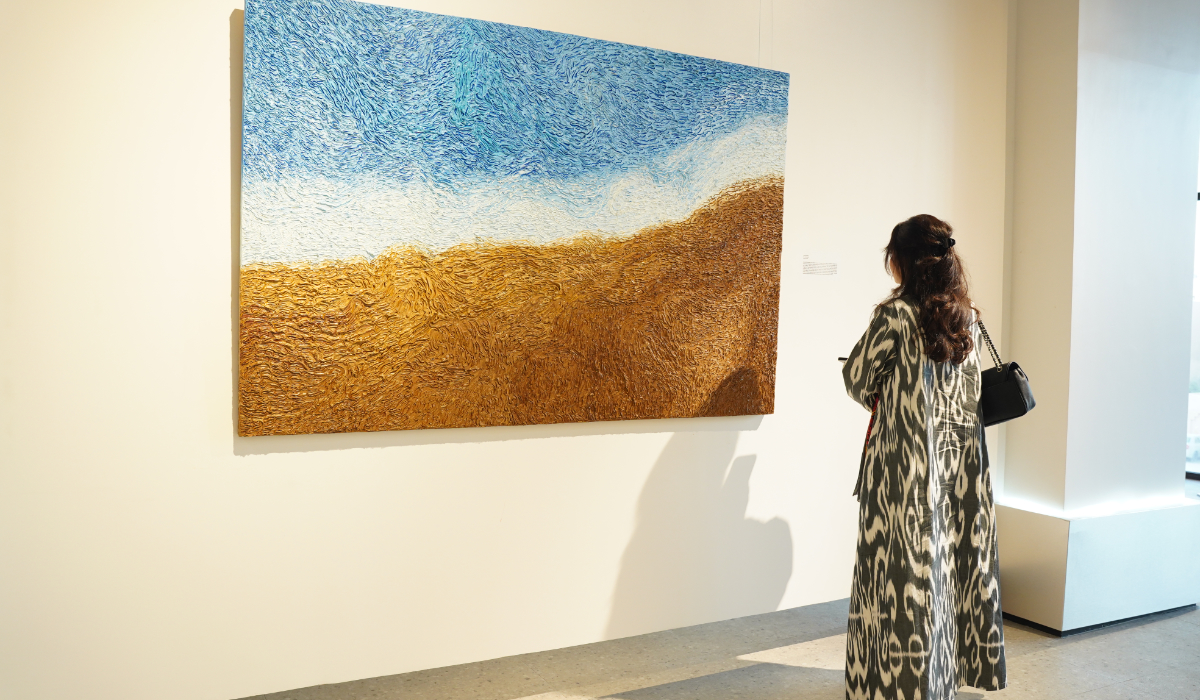
The highlight of the show, “Sans Fin,” is a mirage of moving images constructed by strokes of paint. The piece is inviting, yet mysterious, prompting us to question our capability to grow using the metaphor of a black hole — you never know what may lie in the unknown.
In 2018, when Pocol was a lawyer, he was invited by a colleague to a workshop centered around recreating the work of a contemporary artist. After an accident that resulted in a damaged painting, he developed a technique to repair the artwork.

“My technique gives structural movement. When you see my paintings, you enter a world … it’s moving. My energy also comes up in the artwork,” he said.
In “Transition,” the works invite viewers to consider what lies beneath the surface, with more sculptural works coming into play.
Another installation is made of discarded materials salvaged from artwork waste. What we deem as undesirable is turned into something valuable, and even beautiful, challenging us to reconsider sustainability practices and our role in global consumption.
In the “Vision” collection, the artist’s optimism about the future is linked to the promise of Saudi Arabia’s Vision 2030.
His work “Dessen” is based on a childhood memory of winning his first drawing contest, and celebrates the impact of early creative expressions on future artistic development.
While “Elles” is a tribute to femininity and the women in his family, nearby twin works are inspired by the artist’s migration from Romania to Switzerland.
Pocol describes the green-colored “Ja Deu Tu Certo” as “one of the most personal” works in the collection.
“Any pieces I’ve offered to my mom have been green because I really believe in the power of healing and the green (color). My mother has been fighting metastatic cancer for two years now,” he said. The work conveys his belief that “she will be well.”
He said the color also holds significant meaning in Saudi culture, as it stands for pride and patriotism.
Reflecting on showcasing his works in the Kingdom, Pocol said: “It’s so significant to have my exhibition here. While I have roots from Romania, 30 percent of my genes are Middle Eastern. Being here in Saudi Arabia is very subconscious. I feel at peace, like I’m coming back to something.
“I’ve traveled a lot in my life and it’s the first time I’m able to find a new home outside of Switzerland … once you follow your intuition, it gets you to whatever is meant for you. That’s why I’m here in Saudi Arabia. It’s meant to be.”
The exhibition will run until June 2.
Saudi commission explores impact of biennales on artists
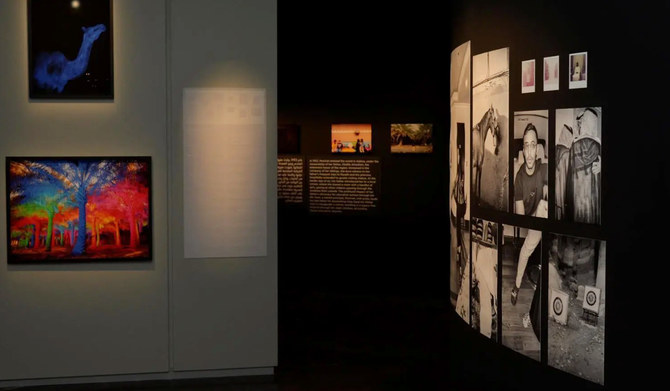
- Shahad Al-Blihed analyzed Manal Al-Dowayan’s work “Shifting Sands: A Battle Song,” emphasizing its reflection of Saudi women amid cultural shifts
RIYADH: Various experts recently took part in a virtual meeting to consider the role of biennales in visual art.
The event was organized by the Visual Arts Commission as part of its ongoing review of the sector, the Saudi Press Agency reported on Sunday.
Biennales are large-scale exhibitions held every two years that provide a platform for artists to engage with specific themes. The meeting outlined the criteria for artist participation, focusing on career robustness and foundational achievements.
Shahad Al-Blihed gave her insights into curating the Saudi pavilion at the 60th Venice Biennale.
She analyzed Manal Al-Dowayan’s work “Shifting Sands: A Battle Song,” emphasizing its reflection of Saudi women amid cultural shifts.
The Venice event demonstrated the commission’s commitment to boosting local artists internationally, the report said.





